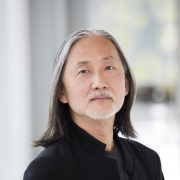Power Poses Don’t Help and Could Potentially Backfire
The idea behind power poses, that if you stand in a “powerful” position, broad posture, hands on hips, shoulders high and pushed back, you will suddenly feel psychologically and physiologically stronger, is intuitively appealing, especially for people without much confidence. The problem is that it’s simply not true, according to researchers Coren Apicella, an assistant professor in the psychology department, and Kristopher Smith, a fourth-year psychology Ph.D. student.
Apicella and Smith attempted to replicate the original power pose study by Dana Carney, Amy Cuddy and Andy Yap, which got much attention when it appeared in 2010 in the journal Psychological Science. The initial study reported increases in feelings of power, risk taking and testosterone and a decrease in cortisol. The Penn researchers found no support for any of the original effects, what’s called embodied cognition, results they published recently in Hormones and Behavior.
“We did find that if anything — and we’re skeptical of these results, because we’d want to replicate them — that, if you’re a loser and you take a winner or high power pose, your testosterone decreases,” Apicella says.
In other words, Smith says, “people might not be able to ‘fake it until they make it,’ and in fact it might be detrimental.”
The pair started working on this study two years ago, with the aim of putting the power pose concept into a relevant ecological context grounded in evolutionary theory. They opted to use as their starting point the notion of contest winners and losers. Before a competition, animals make their bodies as large as possible, gritting their teeth, making their hair stand on edge. In some situations, humans can similarly showcase displays of confidence intended to intimidate an opponent.
Click here to read the full article.





